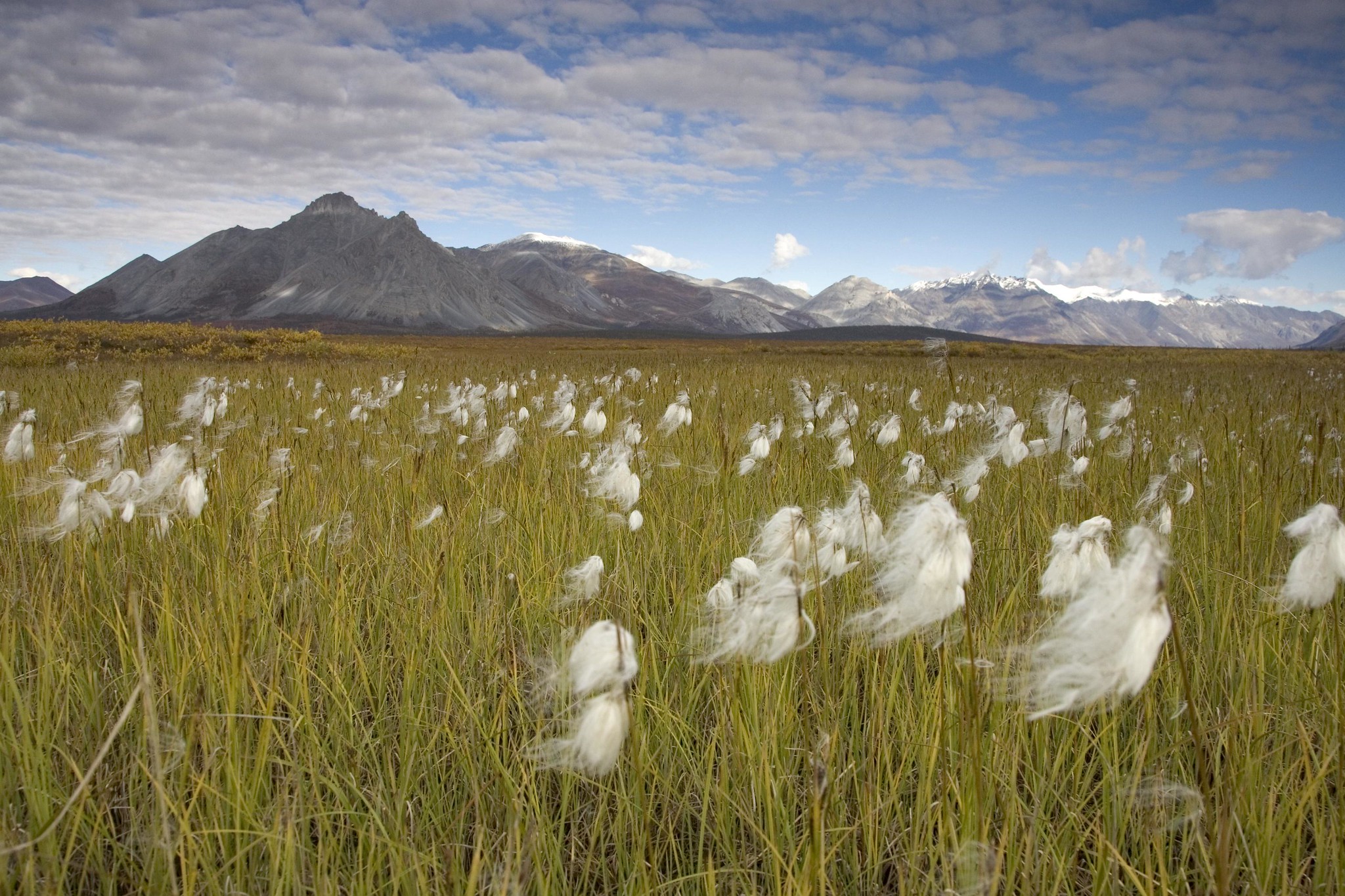Alaska agency devotes $20 million to bid in controversial Arctic refuge lease sale
The Alaska Industrial Development and Export Authority made the decision after fears that low industry interest in the planned Jan. 6 lease sale would doom future refuge drilling prospects.

The Trump administration’s plans to open the Arctic National Wildlife Refuge to oil development in its waning days may be on a doubtful legal and economic footing, but at least one entity is set to bid on exploration rights: the state of Alaska.
The Alaska Industrial Development and Export Authority, a state economic development agency, is poised to spend up to $20 million to bid on tracts in the hotly disputed ANWR lease sale that the Bureau of Land Management has scheduled for Jan. 6.
AIDEA’s seven-member board voted unanimously late Wednesday in favor of the plan, which was floated recently by two former governors concerned about flagging industry interest in ANWR development — Bill Walker, an independent, and Frank Murkowski, a Republican who also served for 22 years in the U.S. Senate.
Murkowski, speaking at AIDEA’s teleconferenced emergency meeting on Wednesday, described state participation in the lease sale as an “extraordinary opportunity” that AIDEA is qualified to grab.
Without the state’s participation, Murkowski said, the showing in the ANWR lease sale might be poor. Major oil companies are unlikely to bid, he said. ExxonMobil has seen its stock value drop, ConocoPhillips is occupied with prospects elsewhere on the North Slope and BP, long a major player in Alaska, has departed the state, causing Alaska’s ego to “suffer a little bit,” he said. Hilcorp Energy Co., the Texas-based independent that bought BP’s Alaska assets, “is, I don’t think, quite ready to establish itself as a major,” he said.
Other corporations that might be involved in ANWR development under different circumstances have shied away, Murkowski said. “The green movement has a significant impact on some of the corporations,” he said. Environmentalists have also turned financial institutions off ANWR development, he said: “We’ve already seen the pressure on the inner-city banks, the big banks.”
Board members, who approved the resolution after discussing it in an executive session, agreed with Murkowski’s take.
“This resolution is specifically what AIDEA was designed for,” said board member Albert Fogle. “For economic development in this state.”
Whether the lease sale will happen as the BLM plans is unclear. It is the subject of four pending lawsuits seeking to overturn the entire plan. It could be stalled by a temporary restraining order that environmental and Native plaintiffs have requested and that a federal judge has promised to rule on quickly. And if the sale is delayed beyond the Jan. 20 inauguration of President-elect Joe Biden, the entire development could be stopped through administrative action; Biden has pledged to protect the refuge from oil development.
[Alaska’s governor wants the state to cut ties with banks who shun Arctic oil drilling]
Before their vote, board members heard about 90 minutes of public comment, which was overwhelmingly opposed to the idea. Critics said it was rushed, fiscally unwise and environmentally destructive.
Kay Brown, a former legislator and former state Division of Oil and Gas director who oversaw oil leasing in the past, said the action was irresponsible and potentially illegal.
“This is a dubious investment as evidenced by lack of industry interest, which is the driving justification for AIDEA to bid. The world is moving on and away from oil dependence, as evidenced by the recent actions by financial institutions in our country and worldwide dampening future prospects for Arctic oil development,” Brown said. “The proposal by AIDEA is completely contrary to the point of issuing oil leases, which is not speculation — which this would be — but rather to identify entities with the capabilities and expertise to find and successfully develop the resource, should any be discovered.”
Rick Steiner, a retired University of Alaska marine biology professor who is now an environmental consultant, also said the scheme was “inappropriate and likely ineligible under federal law.”
“Your proposed resolution really betrays the free-market, capitalist, conservative principles that so many of you espouse,” Steiner said. “If the leases have commercial value, the private market will reflect that. But by trying to avoid embarrassment from little industry interest in the sale, for the state now bid on the leases itself would be folly and far more embarrassing.”
Gwich’in tribal members testified against the idea, as did Karlin Itchoak, Alaska state director of The Wilderness Society and an Inupiat. Itchoak called the resolution “ wildly inappropriate, fiscally irresponsible and legally suspect.”
“The Arctic refuge is a majestic landscape on which people and animals alike depend,” he said. “The refuge sustains our communities, cultures and way of life.”

Dana Pruhs, AIDEA’s board chairman, disputed critics’ claims that the action was potentially illegal and shrouded in secrecy. But he acknowledged that it was a hurried process, something he said was unfortunate.
“We do recognize this is an accelerated timeline. But the timeline is due to a procurement process established by the federal government beyond AIEDA’s control,” Pruhs said.
The BLM lease sale schedule allowed sealed bids to start coming in on Dec. 21. Those bids are to be opened and revealed publicly on Jan. 6, unless court action intervenes.
Only one speaker in the public comment period supported the idea of AIDEA buying ANWR leases. Rick Whitbeck, Alaska head of a pro-development group called Power the Future, said he wished the agency would spend more on the leases.
Despite “the near-continuous whining from the anti-jobs, anti-reality, anti-Alaska, anti-energy-independence, pro-Chinese and anti-Americans, pro-destitution, pro-weakened-American-stature, pro-wildlife-above-human life, leave-it-in-the-ground eco-extremist, there’s a bright, necessary and long-term need and future for oil and gas, and ANWR should be a keystone for America moving forward,” Whitbeck said.